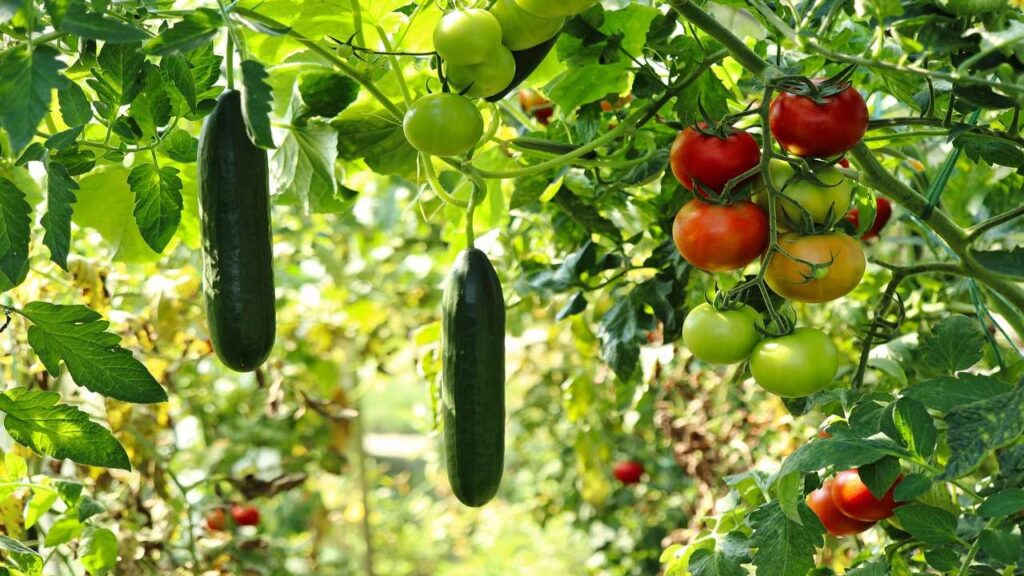10 Organic Vegetables to Grow in Your Home Garden for a Chemical-Free food Growing your own organic vegetables at home is not only rewarding but also ensures you have fresh, chemical-free produce. Organic gardening allows you to control how your food is grown, avoiding synthetic pesticides and fertilizers while promoting sustainable and eco-friendly practices. If you’re looking to start your own organic vegetable garden, here are 10 simple and nutritious vegetables that thrive in a home setting.
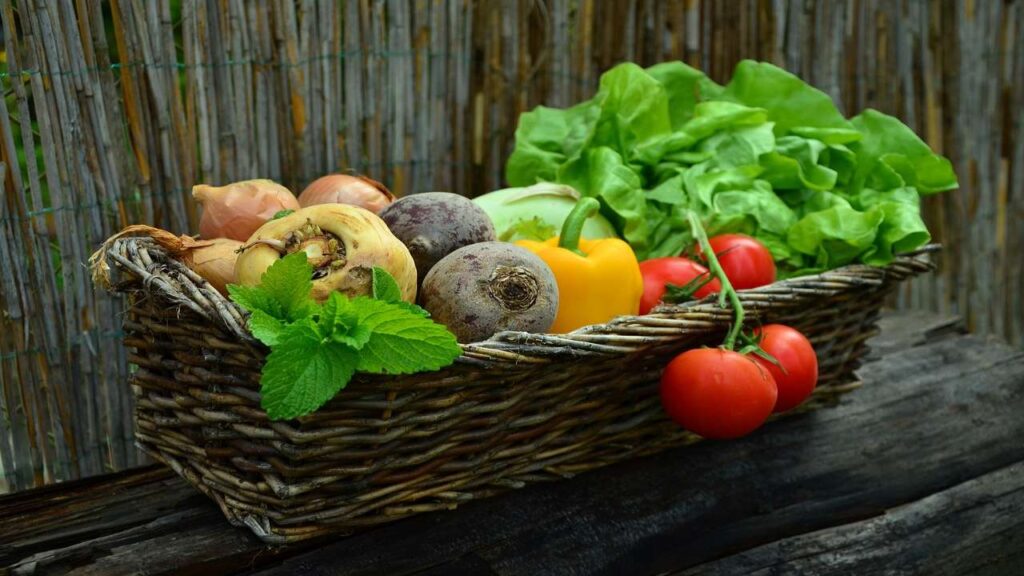
Table of Contents
1. Organic Vegetables to Grow in Your Home Garden – Tomatoes
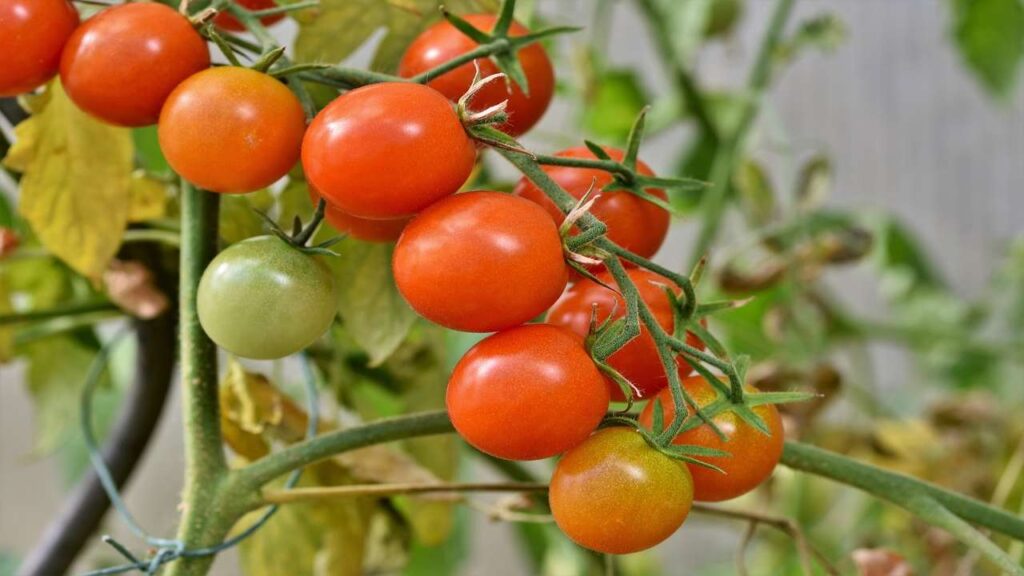
Tomatoes are one of the most popular vegetables to grow in a home garden, and for good reason. They’re easy to care for and produce abundant fruit in a small amount of space. Organic gardening methods, such as adding compost to the soil, improve tomato plant health and flavor. To keep pests away, plant tomatoes alongside basil or marigolds, which naturally repel common tomato pests like aphids.
Tips for Growing organic vegetables:
- Plant in full sun with well-drained, compost-enriched soil.
- Use organic mulch to retain moisture.
- Water at the bottom of the plant to avoid fungal issues.
2. Organic Vegetables to Grow in Your Home Garden – Carrots
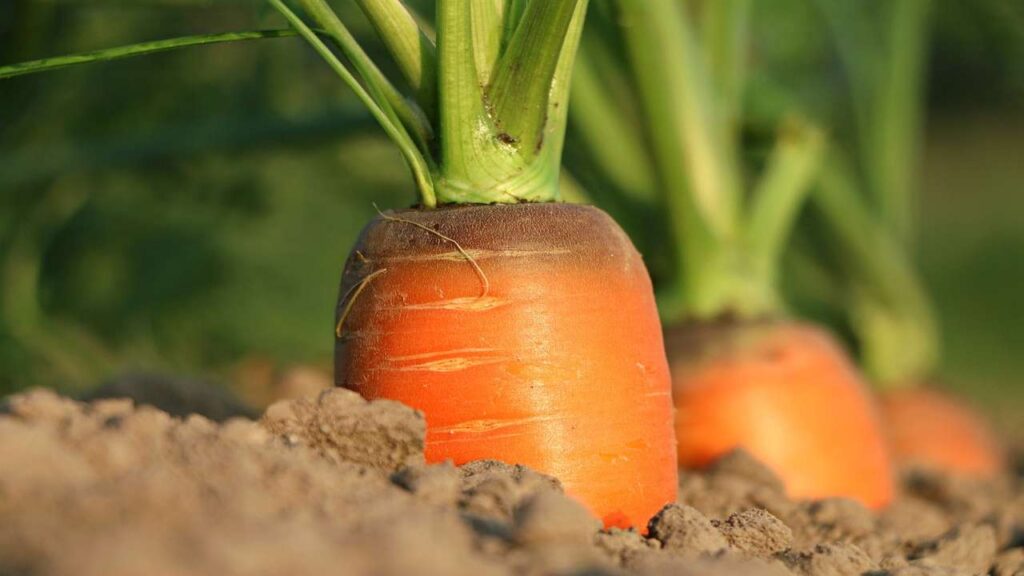
Carrots are perfect for organic gardens as they require minimal maintenance. These root vegetables thrive in loose, fertile soil with plenty of organic matter, such as compost. Avoid chemical fertilizers that can lead to misshapen roots, and instead use natural fertilizers like compost tea or well-rotted manure.
Tips for Growing organic vegetables:
- Grow in deep, loose soil to allow roots to develop properly.
- Give each Carrot Seed enough space to grow.
- Water consistently to prevent the roots from splitting.
3.Organic Vegetables to Grow in Your Home Garden – Lettuce
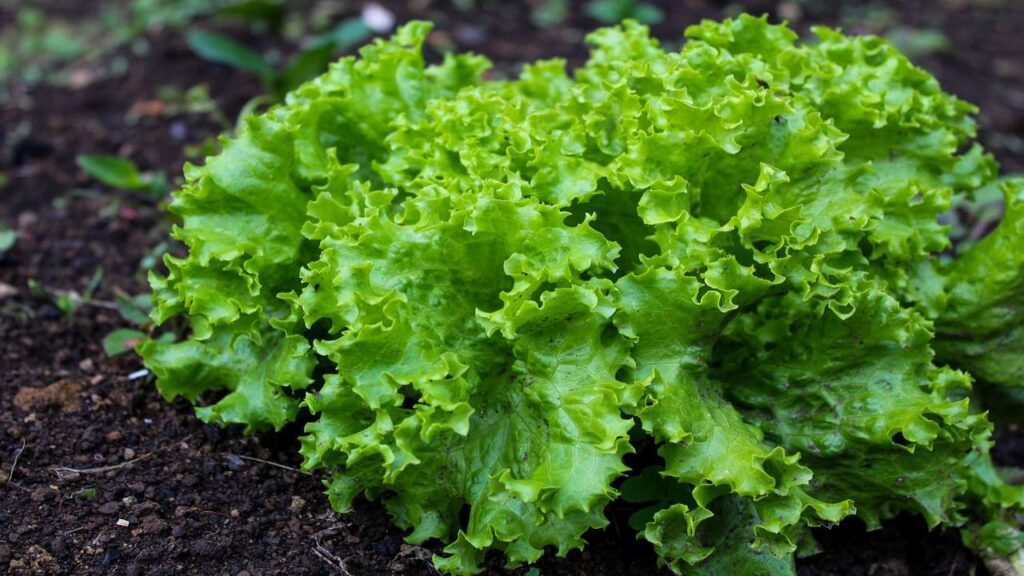
Lettuce is an excellent choice for an organic garden because it grows quickly and can be harvested multiple times throughout the season. This leafy green prefers cooler temperatures, making it a great early spring or fall crop. Use organic mulch to keep the soil cool and moist, reducing the need for frequent watering.
Tips for Growing organic vegetables:
- Plant in partial shade to avoid heat stress.
- Space plants apart to ensure good airflow and prevent disease.
- Use organic compost to enrich the soil and promote steady growth.
4. Organic Vegetables to Grow in Your Home Garden – Cucumbers
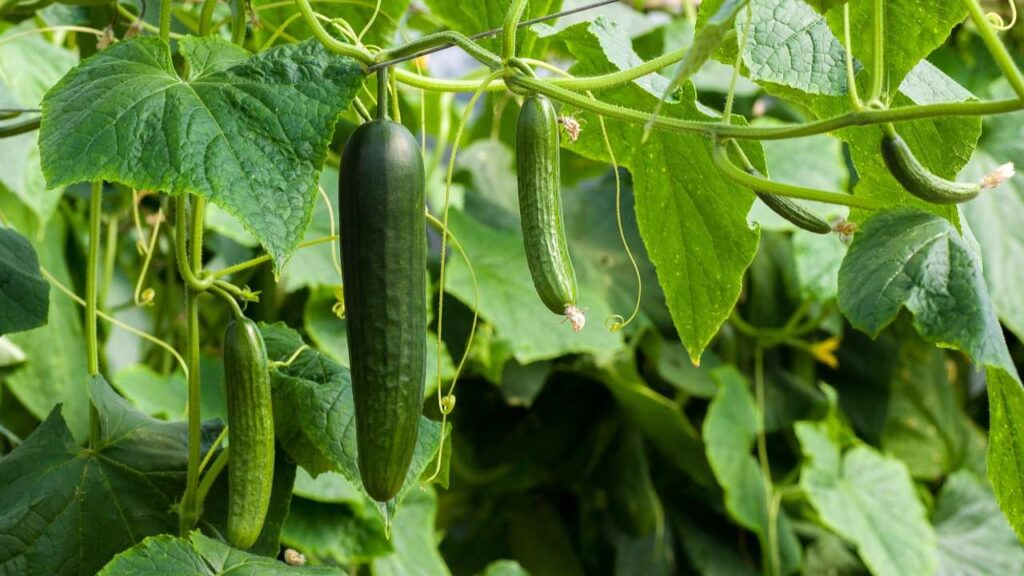
Cucumbers love the warmth and thrive in sunny gardens. To grow them organically, plant them in nutrient-rich soil mixed with compost. Cucumbers can attract pests like aphids and cucumber beetles, but companion planting with marigolds or nasturtiums helps deter these pests naturally.
Tips for Growing organic vegetables:
- Use a trellis to keep vines off the ground, reducing pest exposure.
- Water consistently, but avoid getting the leaves wet to prevent mildew.
- Apply organic fertilizers like compost or seaweed extract.
5. Organic Vegetables to Grow in Your Home Garden – Zucchini
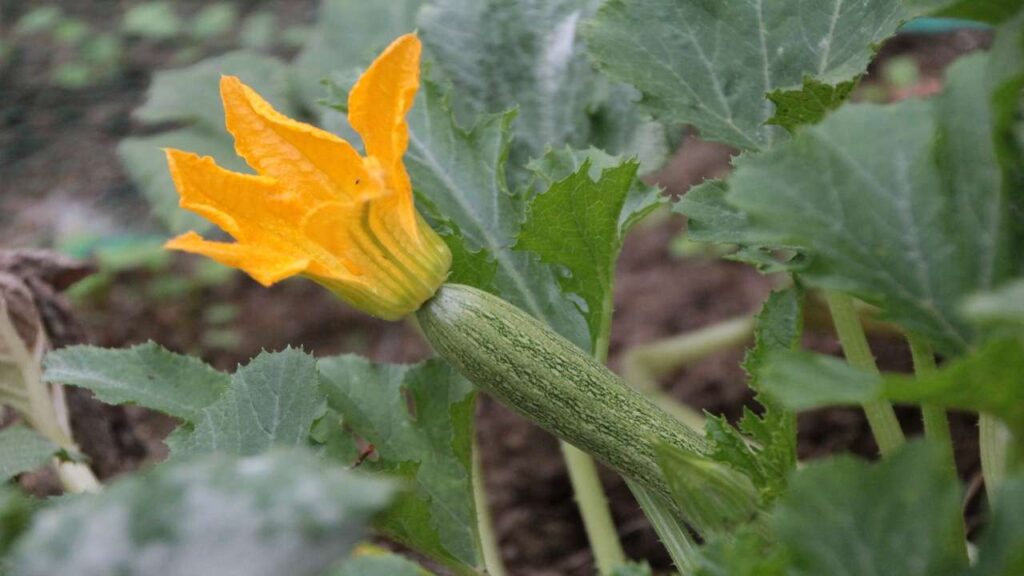
Zucchini is a prolific vegetable that can thrive in an organic garden with minimal effort. These plants love compost-rich soil and plenty of sunlight. By applying organic mulch, you’ll help keep the soil moist and prevent weeds from competing with your zucchini plants.
Tips for Growing organic vegetables:
- Plant in full sun with plenty of space between plants.
- Water regularly at the base to avoid mildew on leaves.
- Harvest zucchini frequently to encourage more production.
6. Organic Vegetables to Grow in Your Home Garden – Spinach
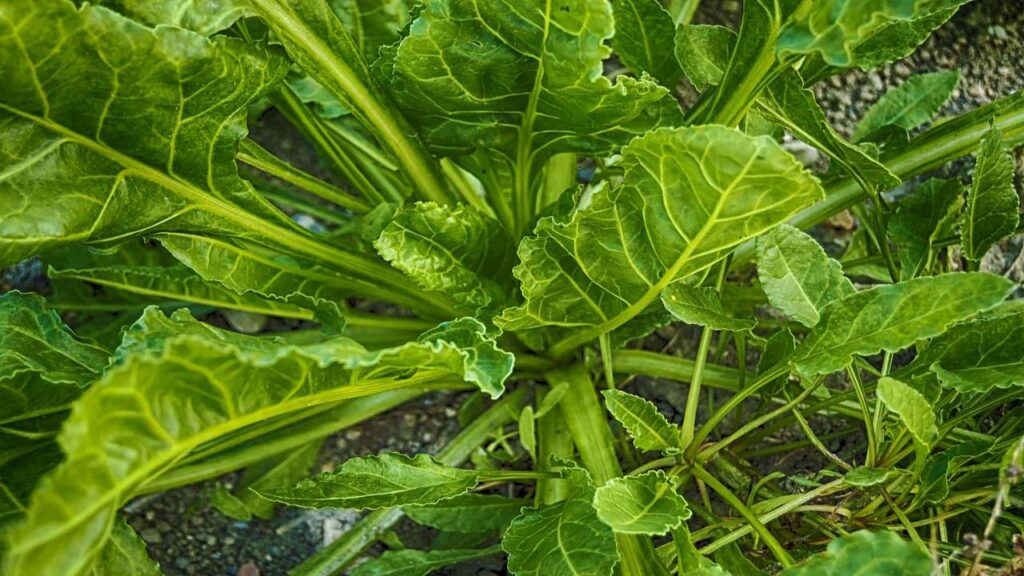
Spinach is a fast-growing leafy green that thrives in cool temperatures and rich organic soil. Spinach benefits from being planted in soil enriched with compost, and companion planting with onions or garlic can help ward off pests naturally.
Tips for Growing organic vegetables:
- Plant in well-drained soil in partial shade to prevent bolting (premature flowering).
- Use organic fertilizers like compost tea to encourage leafy growth.
- Keep the soil moisturized but not over watering
7. Organic Vegetables to Grow in Your Home Garden – Peppers
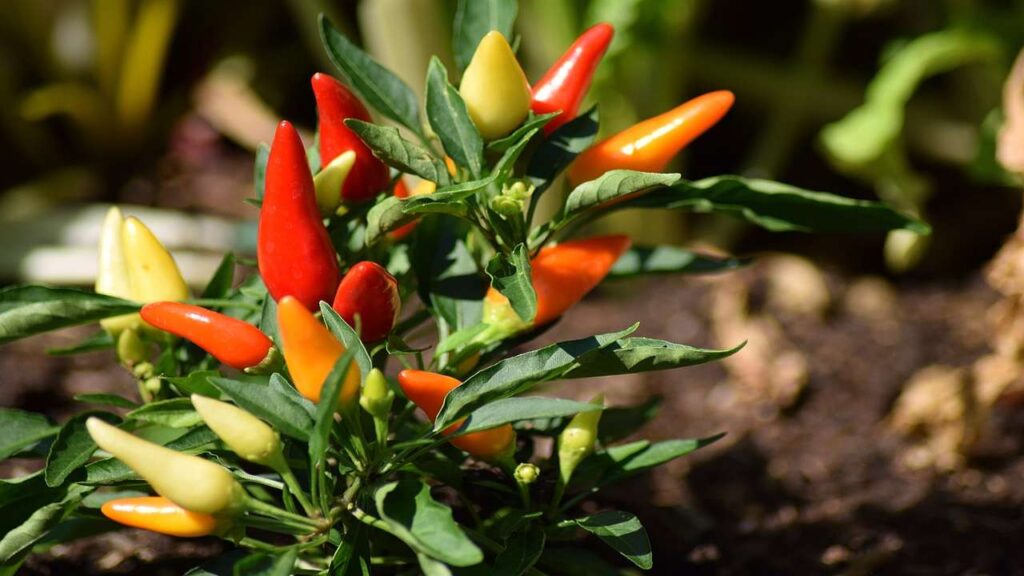
Peppers, both sweet and hot varieties, are perfect for home gardens. They grow well in warm, sunny spots and appreciate soil that’s enriched with compost. Using organic mulch helps keep the soil warm and moist, while companion planting with onions or basil can deter pests.
Tips for Growing organic vegetables:
- Plant in well-drained, compost-rich soil.
- Water regularly and deeply to encourage strong root development.
- Use organic neem oil to control common pests like aphids and spider mites.
8. Organic Vegetables to Grow in Your Home Garden – Beans
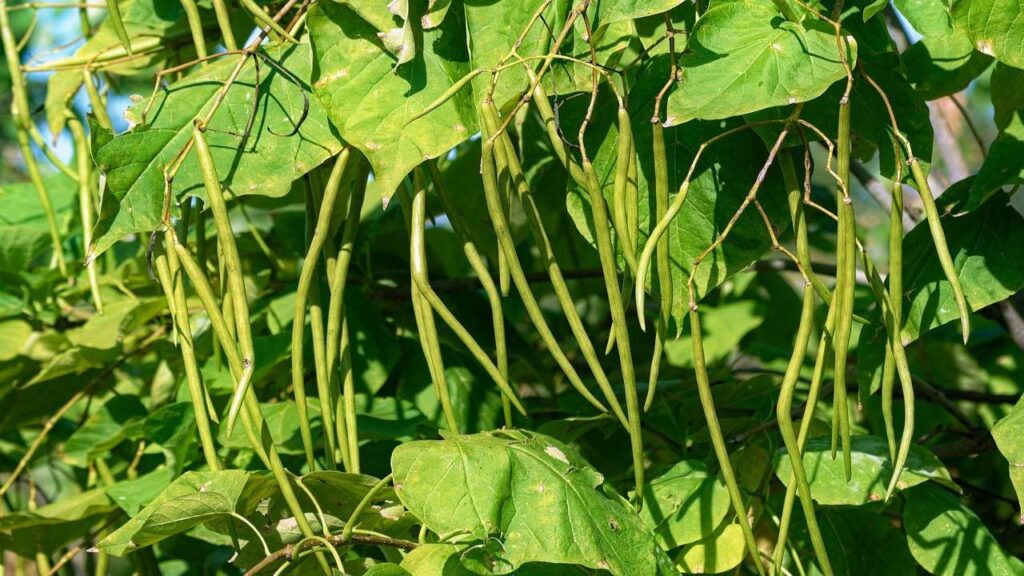
Beans are easy to grow organically and are ideal for small spaces. They enrich the soil by fixing nitrogen, a vital nutrient for plant growth. Whether you grow bush beans or pole beans, adding organic compost to the soil helps beans produce a bountiful crop.
Tips for Growing organic vegetables:
- Plant in full sun and provide support for pole beans to climb.
- Water regularly but avoid getting the leaves wet to prevent disease.
- Rotate beans with other crops for maintaining soil health
9. Organic Vegetables to Grow in Your Home Garden – Beets
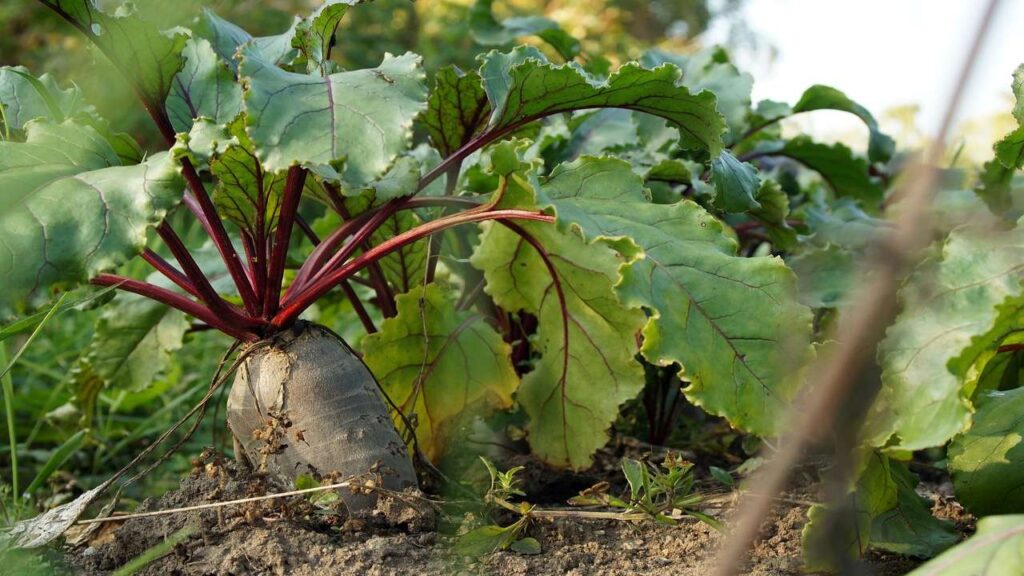
Beets are a hardy vegetable that does well in most climates and can be grown organically in raised beds or garden plots. Organic compost mixed into the soil promotes healthy root development and improves the flavor of beets. Beets also benefit from organic mulching to maintain soil moisture and suppress weeds.
Tips for Growing organic vegetables:
- Plant in loose, well-drained soil for better root development.
- Space plants apart to allow roots to grow without competition.
- Water consistently to ensure tender, flavorful beets.
10. Organic Vegetables to Grow in Your Home Garden Herbs (Basil, Oregano, Mint)
Herbs like basil, oregano, and mint are excellent additions to any organic garden. These herbs are easy to grow in containers or garden beds and often act as natural pest deterrents for neighboring plants. They thrive in rich, well-drained soil and benefit from organic fertilizers like compost.
Tips for Growing organic vegetables:
- Plant in full sun with regular watering.
- Harvest frequently to encourage new growth.
- Keep mint contained, as it can spread rapidly in the garden.
Organic Gardening Tips for Success
Enrich the Soil with Compost: Compost is key to organic gardening.
Practice Crop Rotation: Rotate crops each season to prevent soil depletion and reduce the risk of pests and diseases.
Use Natural Pest Control: Instead of synthetic pesticides, use companion planting, beneficial insects, and organic sprays like neem oil.
Mulch to Retain Moisture: Organic mulching materials like straw or leaves help conserve water, suppress weeds, and maintain consistent soil temperatures.
Water Wisely: Water your plants early in the morning to reduce evaporation and avoid watering leaves, which can lead to fungal diseases.
Conclusion
Growing organic vegetables in your home garden is a fantastic way to enjoy fresh, healthy produce while also reducing your environmental impact. By selecting these 10 easy-to-grow vegetables and using sustainable practices like composting, mulching, and natural pest control, you can create a thriving, chemical-free garden that nourishes both your family and the environment. Happy gardening!
Common Q&A for Growing Organic Vegetables in a Home Garden
Q: What is organic gardening?
A: Organic gardening involves growing plants without synthetic pesticides, herbicides, or chemical fertilizers. Instead, it relies on natural methods like composting, crop rotation, and natural pest control to cultivate healthy, chemical-free produce.
Q: What are the benefits of growing organic vegetables at home?
A: Growing organic vegetables at home offers numerous benefits:
– You choose what goes into your stomach, ensuring it’s free from harmful chemicals.
– It’s more environmentally friendly by promoting soil health and biodiversity.
– Homegrown organic vegetables are often fresher, tastier, and more nutritious than store-bought produce.
– It can save you money in the long run, as you avoid purchasing expensive chemicals and pesticides.
Q: How can I enrich my soil organically?
A: The best way to enrich soil organically is by adding compost, which improves soil structure and adds essential nutrients. Other organic soil amendments include well-rotted manure, leaf mold, and natural fertilizers like bone meal or seaweed extract.
Q: What’s the best way to control pests in an organic vegetable garden?
A: To control pests organically, you can:
– Use companion planting, where certain plants repel pests (e.g., basil repelling aphids near tomatoes).
– Introduce beneficial insects like ladybugs or lacewings that prey on harmful pests.
– Apply organic pest solutions like neem oil or diatomaceous earth.
– Install physical barriers like row covers to keep pests off plants.
Q: How do I water my organic vegetable garden properly?
A: Water your garden early in the morning to minimize evaporation and allow plants to absorb moisture throughout the day.
Q: What’s the importance of crop rotation in organic gardening?
A: Crop rotation helps maintain soil health by preventing nutrient depletion and reducing the buildup of pests and diseases. By rotating different types of plants in your garden each season, you prevent soil exhaustion and keep the soil balanced and fertile.
Q: Which vegetables are best for beginners in an organic garden?
A: Some of the best vegetables for beginners include:
– Tomatoes
– Lettuce
– Carrots
– Zucchini
– Beans
These vegetables are relatively easy to grow, require minimal maintenance, and produce abundant harvests when grown organically.
Q: How can I make my own organic fertilizer?
A: You can make organic fertilizer by:
– Composting kitchen scraps (vegetable peels, coffee grounds, eggshells) and yard waste (leaves, grass clippings).
– Brewing compost tea, which is a nutrient-rich liquid made from soaking compost in water.
– Using organic materials like bone meal, blood meal, or fish emulsion to feed your plants naturally.
Q: How do I keep my organic garden weed-free without chemicals?
A: To manage weeds organically:
– Mulch around plants to block sunlight from reaching weed seeds.
– Use natural weed barriers like straw, leaves, or biodegradable weed fabrics to suppress weed growth.
Q: What are some common challenges in organic vegetable gardening?
A: Common challenges include:
– Pest control without synthetic chemicals, which requires more attention and natural solutions.
– Soil health management, as organic gardening relies heavily on compost and natural fertilizers.
– Weather extremes, which can affect organic plant growth. Mulching, shade cloths, and regular watering can help manage these issues.

